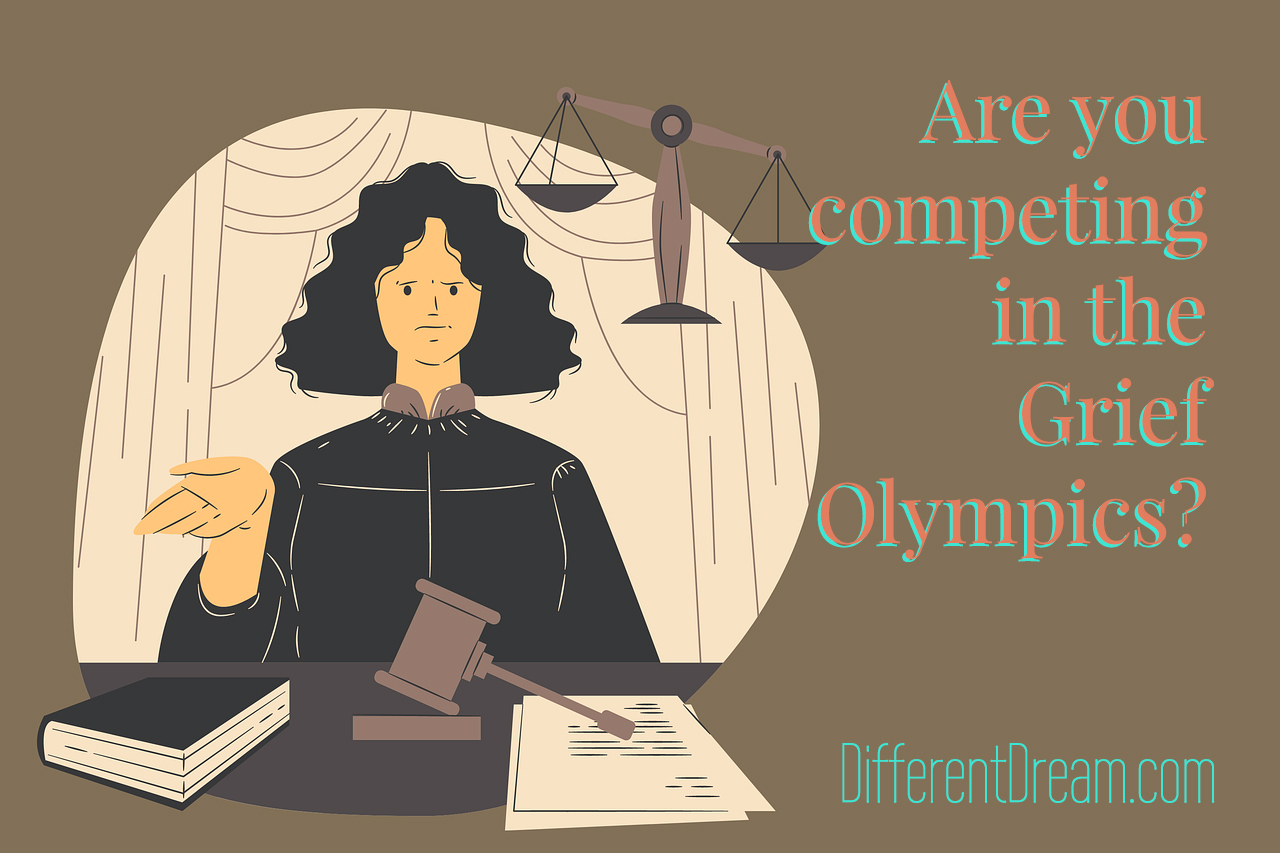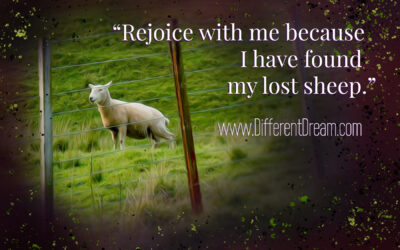Parenting a Child with Disabilities Isn’t the Grief Olympics

Parenting a child with disabilities isn’t the grief Olympics as guest blogger Laura Spiegel knows. However, as is true for many other caregiving parents, she struggles to find a balance between validating her own grief and cultivating a healthy perspective.
It’s Saturday morning, and I’m at a cafe devouring a giant sandwich and eavesdropping on a conversation at a nearby table. Egg and cheese drip down my hands. As I contemplate grabbing a truckload of napkins or maybe just a fork, I overhear the bad news.
Someone walked into a fellow diner’s open garage and stole a high-end power washer. Her table mates tut with sympathy and promise prayers.
I roll my eyes. Don’t these people have real problems?
I wish my judgement was limited to strangers, but alas. There are times when a family member or a friend will describe a piece of personal news while I silently pass judgment.
A tournament lost,
a D+ earned,
the foundation of a house detached by a deranged mole,
a promotion foregone,
a pet husky passed,
a root canal performed with questionable accuracy.
These are setbacks for sure, and some of them are real doozies. But if devastation is on display when casual disappointment would suffice, I reach for my robe and gavel.
My penchant for judgment kicked into high gear after my daughter was diagnosed with cystic fibrosis. One day, I was freaking out about work along with everyone else. The next, a physician was citing statistics that would change the entire way our family thought, felt, and operated.
Any other moms out there relate?
Your kid has to wear a mask to school? Get over it. My kid has cancer.
Drop the mic.
If my inner comparisons have taught me anything, it’s that somebody else has it worse.
I hate that COVID is still floating about, but my kids have good teachers who are trying their best.
What about those girls in Afghanistan whose dreams of education have crumbled?
My mom has cancer and time is finite, but she has lived 80 years of laughter and love.
What about the local teens killed by a drunk driver?
My daughter lives with cystic fibrosis, but she reads like a boss and flies down the track with glee.
What about the friend who lost her child? Or the friend who would give anything to have one?
Thinking in this way can cultivate perspective. But here’s the thing. When taken too far, it can also rob us of the opportunity to sit with our own emotions.
Frustration
Rage
Devastation.
Grief
All are valid feelings, and all have a place in our lives. If we can’t acknowledge and accept these emotions when they arise, how can we begin to process them?
This kind of thinking can also distance us emotionally from others. When I silently weigh a loved one’s troubles against my own, I’m dismissing the common humanity associated with suffering and failing to listen with compassion and empathy. I’m robbing myself—and my loved one—of the opportunity to connect authentically with another human being.
There is no established standard for sadness. What knocks me down may be a bump in the road for you. My hiccups may burn you alive.
But who cares? Sometimes, we just need to hear, “That sounds hard, and I’m here for you.”
I’m working on retiring my scale, on remembering that parenting a child with disabilities isn’t the grief Olympics. When someone shares a hardship with me, I’m trying to take a moment to acknowledge the thoughts that immediately flit into my brain. Some are reasonable; some aren’t. There’s usually an It-could-be-worse in there somewhere.
That’s okay. The more I recognize my rush to judge and compare, the more I can begin to loosen their hold over me, and the faster I can get back to doing what matters most:
loving myself,
loving others,
and accepting love in return.
Do you like what you see at DifferentDream.com? You can receive more great content by subscribing to the monthly Different Dream newsletter and signing up for the daily RSS feed delivered to your email.

By Laura Spiegel
Laura Spiegel spent 12 years at the world’s largest biotech company, partnering with professionals and care teams to help people with special needs and disabilities lead full and happy lives. In 2013 her daughter was diagnosed with cystic fibrosis. Laura now hosts Paint Her in Color, a website that offers emotional support to parents of children with special medical, developmental, or behavioral health care needs. When she isn’t reading, writing, or soaking up time with her husband and kids, Laura can be reached at Paint Her in Color, by email at laura@paintherincolor.com, and on Facebook and Twitter.
Subscribe for Updates from Jolene
Related Posts
Lord, I Don’t Understand… But I Trust You
Sandy Ramsey-Trayvick explains that a true relationship with God enables her to say, “Lord, I don’t understand, but I trust You.”
A Valentine’s Day Love Story
It’s not all flowers, candy, and moonlit dinners. Jolene shows what love is all about in her Valentine’s Day love story.
Disability Ministry Goes After the One
Guest blogger Mark Arnold proclaims that by looking at the example of Jesus, we can say that disability ministry goes after the one.






0 Comments